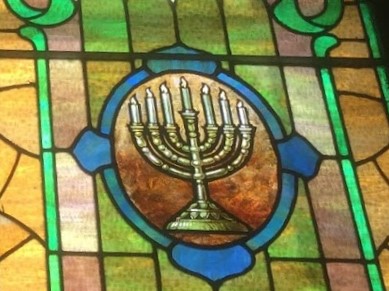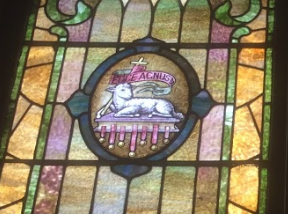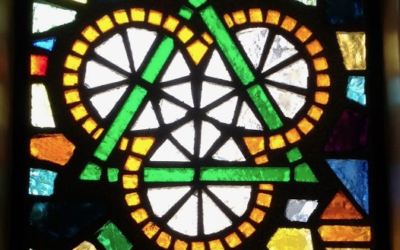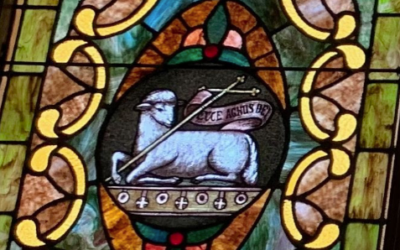What are you looking for?
Sunday, October 4, 2020
Watch the service
Listen to the sermon

Read the sermon
What Are You Looking For?
Can i help you? When you go to a store and you don’t know if they have what you want or where it is, someone will usually show up. And that is the question they ask. And my conclusion is that they ask that question because it would be rude to ask the real question: what are you looking for? And yet it’s true that we go into a store and we are looking for some item. And if we do not find it, we can get frustrated. That’s the context we find here in these words in the prophet, Isaiah. The Lord is looking. But what is is he is looking for? We read: “1 I will sing for the one I love a song about his vineyard: My loved one had a vineyard on a fertile hillside. 2 He dug it up and cleared it of stones and planted it with the choicest vines. He built a watchtower in it and cut out a winepress as well. Then he looked for a crop of good grapes, but it yielded only bad fruit.” (Is. 5:1–2 NIV11-GKE)
These words are fascinating when you see what is going on in them. Through Isaiah, the Lord tells a story. It’s a story that they all would have been used to and would have liked to listen to. It’s the story of a beloved vineyard. The Master wants a vineyard. So what does he do? First he picks a choice plot of land with rich, fertile soil. Then he gets to work digging up the rocks. When I was growing up, we had our garden on a hillside. And that was the work that my brothers and I had. We had to find the rocks, take them out, and put them in a pile. It’s hard work. But it’s necessary work. Then after that he planted the vineyard. Then he took the rocks that he had put in a pile and he made a wall around the vineyard so that animals wouldn’t get in and eat his grapes. He puts in a winepress. And finally, he goes way beyond the call of duty and takes the extra rocks and puts a tower up to make sure the vineyard is protected. Then, finally, what does he do? He waits. Good, choice grapes take two years to grow. So, day by day, he looks and yearns for the day when he will have his grapes. But, instead of good, choice grapes, the vineyard produces sickening, diseased grapes.1(Is. 5:2 BHS-T)}} Look at the work the master puts in. But next look at the worth. How much was that work worth? “3 “Now you dwellers in Jerusalem and people of Judah, judge between me and my vineyard. 4 What more could have been done for my vineyard than I have done for it? When I looked for good grapes, why did it yield only bad?” (Is. 5:3–4 NIV11-GKE)
Notice how these words follow. Isaiah invites those who are listening in on this song to be judges and jury. Is this right? Is this how it’s supposed to work out? Was all of that work worth it? The obvious, clear, and unavoidable answer is: no. The work was not worth it because the grapes were sickly and diseased. Look then at what follows then: “5 Now I will tell you what I am going to do to my vineyard: I will take away its hedge, and it will be destroyed; I will break down its wall, and it will be trampled. 6 I will make it a wasteland, neither pruned nor cultivated, and briers and thorns will grow there. I will command the clouds not to rain on it.”” (Is. 5:5–6 NIV11-GKE)
Was the work worth it? No. So what follows then is wrath. Notice the sort of anger this master shows. It would have been enough to just let the vineyard go. It would have been enough to let it get overgrown and turn into wilderness. But his wrath is so real and so consuming that he goes out of his way to make sure that nothing grows there again—even making sure the rain never reaches that place. It’s a powerful story—how work is followed with worth and finishes with wrath. But what is the point? We read: “The vineyard of the Lord Almighty is the nation of Israel, and the people of Judah are the vines he delighted in. And he looked for justice, but saw bloodshed; for righteousness, but heard cries of distress.” (Is. 5:7 NIV11-GKE)
The Lord here is not really talking about grapes. Instead he is talking about people. He is looking for grapes in us. And these grapes are signs of real repentance. He says that there should have been righteousness. But instead there were outcries—outcries against God’s people. Or to apply these words to ourselves, there should be righteous desires and actions in us, but instead people cry out against you—and they have every right to. And when we hear this we ask the question, why? Why would people cry out to God against us? People cry out to God against us because God looks in us for repentance but finds that our repentance is shallow and only skin-deep. And there are many examples of this we could look at in our lives. But to stay with the context here in these words, the patience that the Lord shows to this vineyard is the sort of patience we should have and show. But there are times that we do not. We are not patient with others. Those around us and in our lives sin. They mess up. And they mess up often. They make bad choices. And they form bad habits. And what that means is that even when they are repentant, like a grape on a vine, it will take time to see that repentance grow. For it has to start with thoughts, then move to words, and then finally move to actions. And as our friends frustrate us with their sinful habits and choices it can wear us down. We should have patience with them. But we do not.
But this is also true with how we look at God. Each of us faces this huge temptation to play God. Each of us has this plan of how details are supposed to work out in our lives. We want this plan to work out my way. But we also want this plan to work in my time. And we are not patient with our Triune God, waiting to see how he will work out his plan, day by day, decade by decade, in our lives.
So, my friends in Christ, what is the Lord looking for in you? He is looking for grapes—real effects of your repentance. He looks and he doesn’t find good grapes. He finds bad ones. He finds people who are not patient with each other. He finds people who are not patient with him.
These words move us to sadness, don’t they? But not all sadness is bad. For just as God looks in us to find grapes, so also we look to him to produce grapes in us. And how he does this is amazing. First, he prunes us. Yes, it’s true that he prepares the soil of the vineyard. But when that vine is planted it takes care. It takes time to cut away the branches you don’t want. And pruning hurts. And the Lord does the same with us. He lets us endure pain every now and then, not as punishment, but as pruning. There are those times that we can openly and honestly say, “I didn’t take any action that deserved that in my life.’” The injury done to you by someone else; the bad health report—they came, seemingly out of nowhere. But God uses them for good. He prunes us. He causes us to see our sin. And as we do so we begin to look. We look in ourselves and hate our bad fruit—our sinful desires and habits.
So we look to him to prune us. But we also look to him to pay for us. There are those times in our lives we know that we were not patient with those around us who continually repent of their sins but then mess up. There are those times when we are not patient with our Lord above because he didn’t work out the details in my life my way and in my own timetable. So what does Jesus do? He pays for our sin. He pays for our sin with his own patience. One of my favorite parts of the bible is these words: “51 As the time approached for him to be taken up to heaven, Jesus resolutely set out for Jerusalem. 52 And he sent messengers on ahead, who went into a Samaritan village to get things ready for him; 53 but the people there did not welcome him, because he was heading for Jerusalem. 54 When the disciples James and John saw this, they asked, “Lord, do you want us to call fire down from heaven to destroy them?”” (Luke 9:51–54 NIV11-GKE)
Whoah! You turn down the privilege of having Jesus preach in your town and his disciples pray to burn your village to the ground with fire from the sky. But my dear friends, that is what those villages deserved. They were despising God himself. But instead of burning them out of existence, he is patient with them and he is patient with his disciples. And when God, our Father sees our lack of patience, instead he sees his Son. He sees Jesus’ amazing patience in our place.
And so, my dear friends in Christ, your Lord is looking for grapes in you. So look to him. Look to him to prune you and to pay for you. Amen.
1 ”בְּאֻשִֽׁים“



